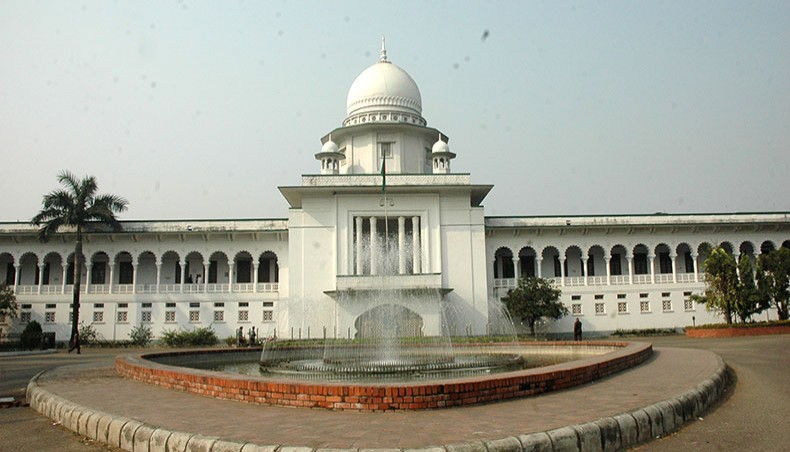Courts asked to complete graft trial in 60 days
The Supreme Court in an administrative order recently directed the special judges’ courts across the country to complete the trial in each corruption case within 60 days as the law requires.
In the directive issued on November 9, the Supreme Court said that it came to its notice that the special judges’ courts failed to complete trial in corruption cases within the stipulated time frame.
The SC said it found the rate of disposal of corruption cases was discouraging.
SC officials told New Age that the directive was issued after Chief Justice SK Sinha while in inspection visits to Dhaka Courts in June found that few corruption cases were sent to the special judges’ courts for trial though they were created in 2007 exclusively for trying corruption cases.
They said that the Chief Justice also found out that the district judge’s court and the metropolitan session judge’s court were themselves holding trials in corruption cases though the law requires them to forward these cases to 10 special judge’s court in the capital and another for Dhaka division for trial.
SC officials said that it also came to the notice of the Chief Justice that the special judges’ court were preoccupied with cases relating to narcotic offences as these cases were forwarded to them.
The Anti-Corruption Commission’s annual report for 2015 says 1,080 corruption cases awaited disposal since 2004 while 3,097 corruption cases of the later period also were pending disposal.
Out of 306 corruption cases disposed of in 2015, says the ACC annual report 118 were filed before October 2004 by the then Bureau of Anti-Corruption.
Due to delays in holding trials many corruption accused evaded punishments, said lawyers and corruption watchdog Transparency International Bangladesh.
The directive said that it came to the notice of the Supreme Court that most of the district and sessions judges and metropolitan session judges and the judges under them were holding trials in corruption cases instead of forwarding them to the courts of special judges for disposal.
The SC directive asked district and metropolitan sessions judges to forward corruption cases to the special courts for speedy disposal without wasting time.
The Supreme Court directed the special judges’ courts to dispose of each corruption case within 60 days since taking it into cognizance as the Criminal Law Amendment Act 1958 requires.
ACC director-general for legal and prosecution Md Moyeedul Islam said that available information shows that the special courts were wasting their time on petty narcotic offences though they were created for trying corruption cases.
The ACC’s senior public prosecutor Mir Ahmed Ali Salam said that the law as well as the SC directive were silent about what would happen to the corruption cases if they were not disposed of within 60 days.
Salam said that delays in disposal also occur due to ACC’s failure to bring witnesses when help from the police remains elusive.
He said that due to delays in holding trials the accused often get acquittal.
Former High Court Division judge, Justice Khademul Islam Chowdhury said that as the corruption cases were being dealt by courts not supposed to do it the accused were getting away with serious corruption offences.
He said that the fresh directives from the SC should be strictly followed to ensure rule of law and good governance.
TIB executive directive Iftekharuzzaman said that the as timely and logical SC directive would ensure speedy disposal of corruption cases and end the culture of impunity.
- See more at: http://www.newagebd.net/article/2674/courts-asked-to-complete-graft-trial-in-60-days#sthash.lxwxTElA.dpuf











